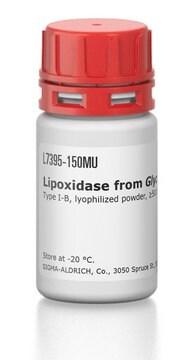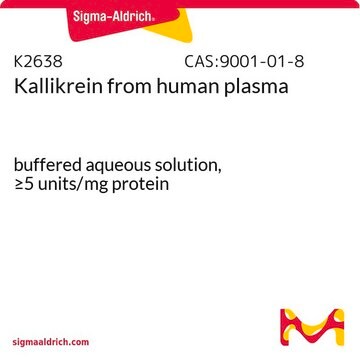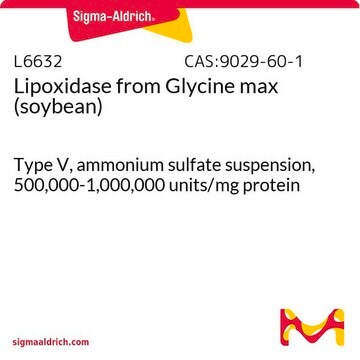L8134
Linoleic acid sodium salt
≥97% (GC)
Synonym(s):
Sodium linolate, Sodium linoleate, cis-9,cis-12-Octadecadienoic acid sodium salt
About This Item
Recommended Products
biological source
plant oil (safflower)
Quality Level
Assay
≥97% (GC)
form
powder
technique(s)
activity assay: suitable
color
white
mp
230 °C (446 °F)
solubility
methanol: 50 mg/mL, clear, yellow
application(s)
general analytical
life science and biopharma
functional group
carboxylic acid
lipid type
omega FAs
shipped in
ambient
storage temp.
−20°C
SMILES string
[Na+].CCCCC\C=C/C\C=C/CCCCCCCC([O-])=O
InChI
1S/C18H32O2.Na/c1-2-3-4-5-6-7-8-9-10-11-12-13-14-15-16-17-18(19)20;/h6-7,9-10H,2-5,8,11-17H2,1H3,(H,19,20);/q;+1/p-1/b7-6-,10-9-;
InChI key
WYPBVHPKMJYUEO-NBTZWHCOSA-M
General description
Application
- in the β-carotene-linoleic acid assay
- as a component in basal medium to treat peripheral blood mononuclear cells (PBMCs)
- in Dulbecco′s modified Eagle′s medium (DMEM)/F-12 HEPES (4-(2-hydroxyethyl) piperazine-1-ethanesulfonic acid) to incubate human trophoblast-derived choriocarcinoma cells (BeWo) and study its effects on adherens junctions (AJ) marker level, cell layer permeability, and intracellular lipid accumulation
Biochem/physiol Actions
Features and Benefits
- High-quality molecule suitable for mulitple research applications
- Commonly employed in Metabolomics and Biochemical studies
Other Notes
Signal Word
Warning
Hazard Statements
Hazard Classifications
Skin Irrit. 2
Storage Class Code
11 - Combustible Solids
WGK
WGK 3
Flash Point(F)
Not applicable
Flash Point(C)
Not applicable
Personal Protective Equipment
Choose from one of the most recent versions:
Certificates of Analysis (COA)
Don't see the Right Version?
If you require a particular version, you can look up a specific certificate by the Lot or Batch number.
Already Own This Product?
Find documentation for the products that you have recently purchased in the Document Library.
Customers Also Viewed
Our team of scientists has experience in all areas of research including Life Science, Material Science, Chemical Synthesis, Chromatography, Analytical and many others.
Contact Technical Service










